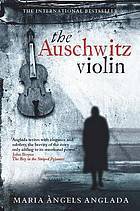Bright Thoughts for a Dark Day
(from Poems of the Heart and Home: 1881)
Will the shadows be lifted to-morrow?—
Will the sunshine come ever again?—
Will the clouds, that are weeping in sorrow,
Their glorious beauty regain?
Will the forest stand forth in its greenness?—
The meadows smile sweet as before?—
And the sky, in its placid sereneness,
Bend lovingly o’er us once more?
Will the birds sing again as we heard them,
Ere the tempest their gentle notes hushed?—
Will the breeze float again in its freedom,
Where lately its melody gushed?
Will the beautiful angel of sunset
Drape the heavens in crimson and gold,
As the day-king serenely retireth,
’Mid grandeur and glory untold?
Yea; the clouds will be lifted to-morrow,
From valley, and hill-top, and plain;
And sunshine, and gladness, and beauty
Will visit the landscape again;—
The forest, the field, and the river
Will bask in the joy-giving ray;
And the angel of sunset, as ever,
Will smile o’er the farewell of day.
For the longest day hastes to its ending,—
The darkest night speeds to the day;—
O’er thickest clouds, ever, the sunbeam
Shines on with unfaltering ray;—
Though thou walk amid shadows, thy Father
Makes His word and his promises thine;
And, whatever the storms that may gather,
At length thro’ the gloom He will shine!
Mrs. J. C. Yule, née Pamelia Sarah Vining (1826-1897)
Canadian poet



